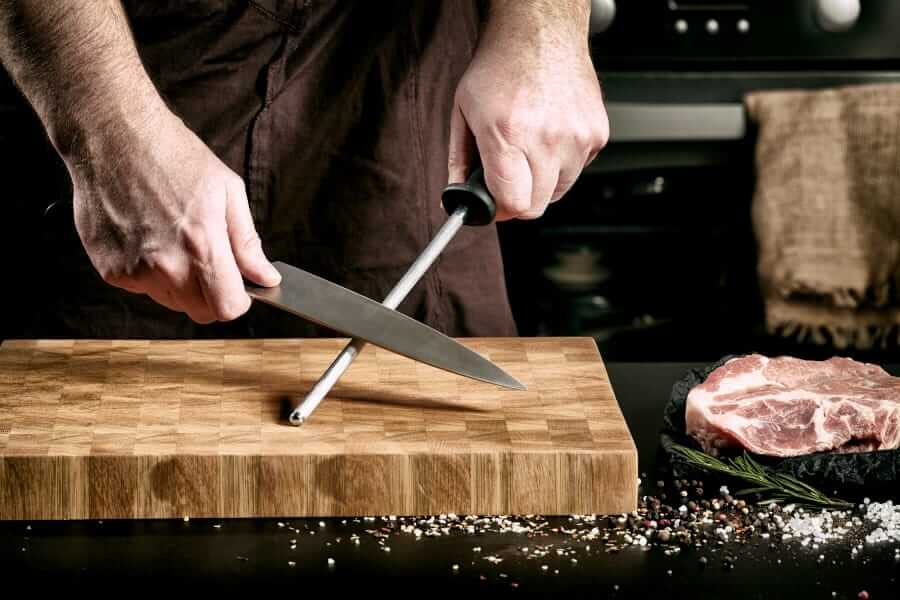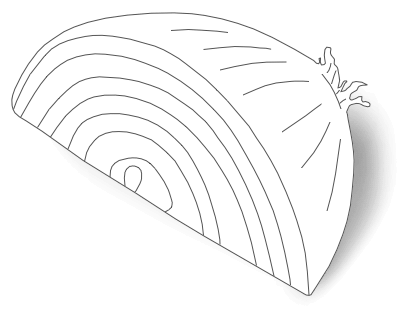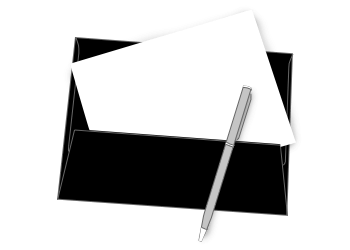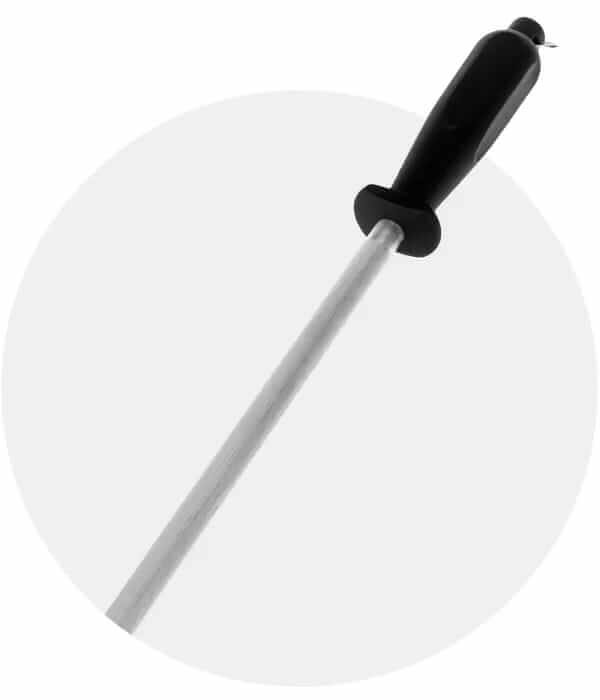
Professional knife
sharpening steel,
$12.99 by Allwin
Maintain Your Edge
The single most important aspect of caring for your kitchen knives is keeping them sharp. You don't have to constantly sharpen your knives, but regular honing is something you should consider. You've seen it done before—by chefs and cartoon characters, whipping their knife back and forth on a textured steel rod. That's honing. A blade's edge is thin—so it has a tendency to fold itself over after a period of use. By honing it, you are simply straightening the edge until it becomes a sharpened triangle.

Professional knife
sharpening steel,
$12.99 by Allwin
Clean With Care
Don't put your good knives in the dishwasher—even if they're listed as “dishwasher safe.” The jets can cause blades to collide or rattle against the edge of a plate, or even the rack itself. Plus, the detergents used are much more abrasive than regular dish soap and can react with the metals. You're better off hand washing your blades and drying them immediately with a towel. This is also the safest way to handle while putting them away.
Got a carbon steel knife? It's a superior metal for making knives since it holds its edge for a long time. But like a cast iron skillet, it's prone to corrosion and rust. Try to lightly oil your carbon steel knife after drying it.
Store Them Properly
Throwing your knives in any drawer, mixed in with other utensils, is one of the worst ways to store them because they'll be jostled around in the drawer every time you open it. If you haven't picked up on it yet, you want to protect the blade's edge from getting scratched, dented or chipped. Some cooks swear by the wall-mounted magnetic strip to keep your blades handy. There's always a classic knife block, but the key is to slide the knives into the slots upside down, so that they're not resting on the sharp edge of the blades. Or you could get a drawer insert that prevents your knives from moving around.
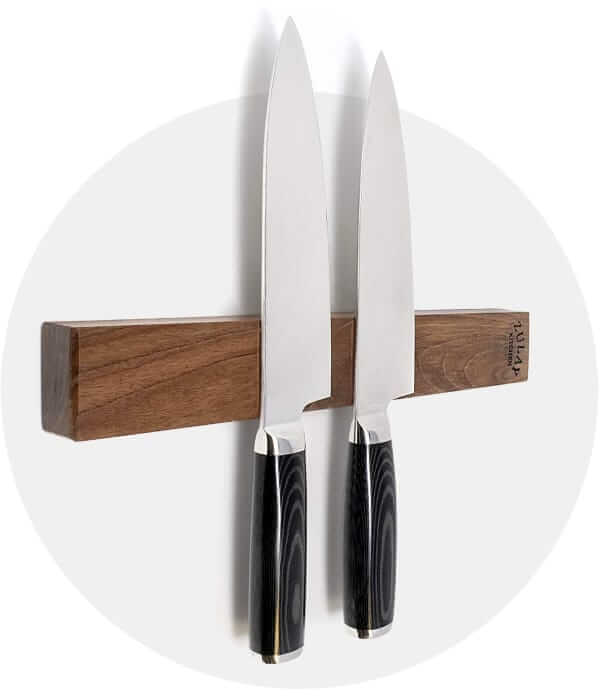
Walnut wood magnetic strip,
$29.99 by Zulay
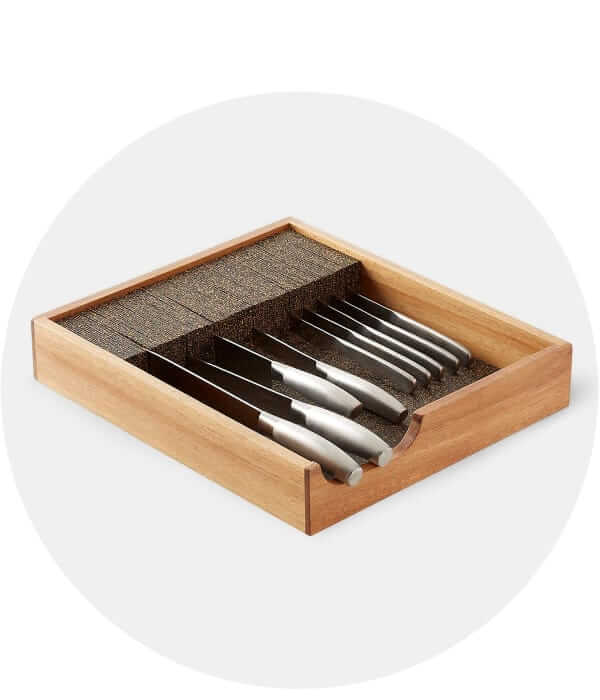
Bamboo and cork knife dock,
starting at $39.99 by The Container Store
Where to Cut
Using the wrong type of cutting board (or not using one at all) is a common mistake. You don't want to cut on a surface that's harder than your knife. That means no cutting on your countertops or on a glass board. This can cause the edge to roll or chip. Bamboo boards are okay, but the fibrous nature of the material will dull a blade quickly. A more traditional hardwood is recommended and an end-grain wooden cutting board is ideal, but any hardwood board is good.
